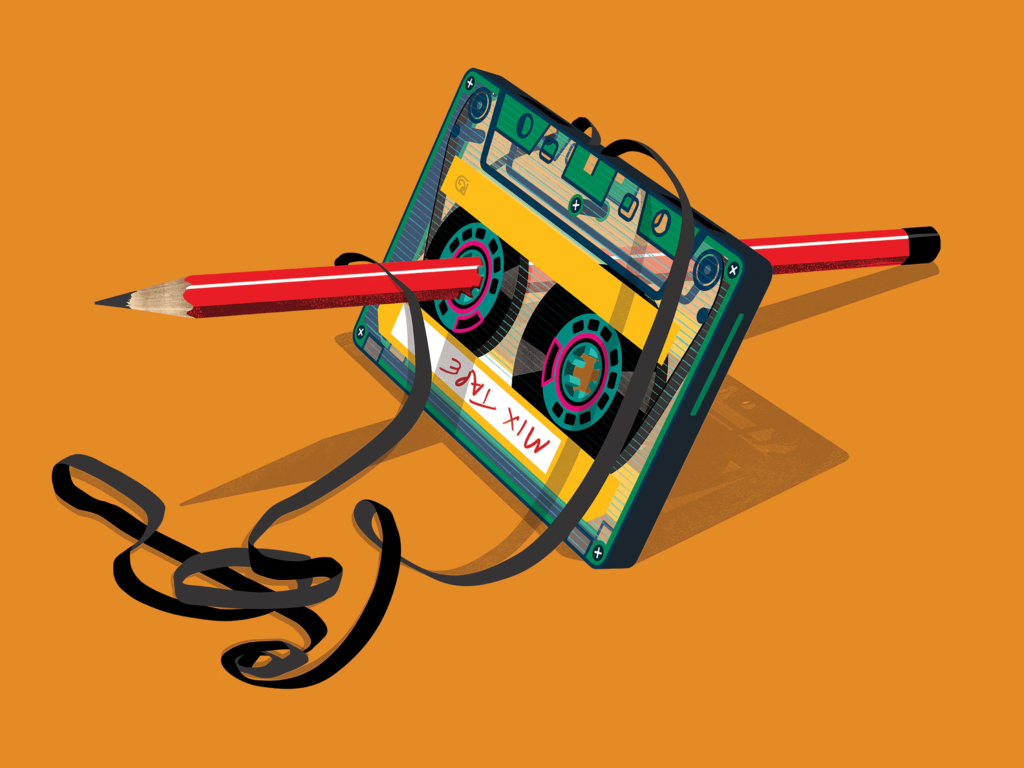
Introduction
Nostalgia is a powerful emotional force that can evoke fond memories and strong feelings of the past. In the realm of music marketing, nostalgia has proven to be an effective tool in engaging audiences, driving sales, and fostering brand loyalty. This article delves into the role of nostalgia in music marketing, exploring how artists, record labels, and marketers leverage nostalgic elements to create compelling campaigns that resonate with listeners across generations.
Understanding Nostalgia
What is Nostalgia?
Nostalgia refers to a sentimental longing or wistful affection for the past. It is a complex emotional state that can be triggered by various stimuli, such as music, smells, visuals, and experiences. In the context of music, nostalgia often relates to songs, albums, or genres that evoke memories of specific periods in one’s life.
Psychological Impact of Nostalgia
Nostalgia has been shown to have several psychological benefits. It can enhance mood, reduce stress, and increase feelings of social connectedness. When people listen to music that reminds them of their past, it can create a sense of continuity and comfort, reinforcing their identity and providing emotional support.

The Power of Nostalgia in Music Marketing
Evoking Emotional Responses
Music is inherently emotional, and when combined with nostalgia, it can create a potent mix that deeply resonates with listeners. By tapping into cherished memories and experiences, nostalgic music can evoke powerful emotional responses, making marketing campaigns more impactful and memorable.
Creating a Sense of Identity and Belonging
Nostalgic music can reinforce a listener’s sense of identity and belonging. By revisiting songs from their youth or significant life moments, individuals often feel a connection to their personal history and a shared cultural heritage. This connection can foster a sense of loyalty to artists, brands, or music genres associated with those memories.
Broadening Audience Appeal
Nostalgia can transcend generational boundaries, appealing to both older audiences who experienced the original music firsthand and younger listeners who are curious about or influenced by past eras. This broad appeal allows music marketers to reach a wider demographic, increasing the potential for engagement and sales.
Strategies for Leveraging Nostalgia in Music Marketing
Re-releasing Classic Albums and Tracks
One effective strategy is to re-release classic albums or tracks, often remastered or in special edition formats. These re-releases can attract original fans who want to relive the experience and new listeners who appreciate the historical and cultural significance of the music.
Incorporating Retro Themes in Marketing Campaigns
Incorporating retro themes and aesthetics in marketing campaigns can evoke a sense of nostalgia. This can include using vintage visuals, fonts, and color schemes, as well as referencing iconic moments from the past. For example, music videos, advertisements, and social media content can be styled to reflect the era associated with the music being promoted.
Collaborations and Covers
Collaborations between contemporary artists and those from past eras can create a bridge between generations. Additionally, modern artists covering classic songs can introduce nostalgic music to new audiences while honoring the original work. These collaborations and covers can generate buzz and interest across diverse listener groups.
Utilizing Nostalgic Venues and Formats
Hosting concerts or events in iconic venues with historical significance or using formats such as vinyl records and cassette tapes can enhance the nostalgic appeal. These elements create a tangible connection to the past, enriching the overall experience for fans.
Storytelling and Personal Narratives
Effective storytelling that highlights personal narratives and historical contexts can enhance the nostalgic impact of music marketing. Sharing stories about the creation of a song, its cultural impact, or personal anecdotes from artists can deepen the emotional connection for listeners.
Case Studies of Successful Nostalgic Music Marketing Campaigns
1. The Beatles: Remastered Albums and Documentaries
The Beatles have successfully leveraged nostalgia through remastered album releases and documentaries. Projects like “The Beatles: Get Back” documentary series and the remastered editions of their classic albums have reignited interest in their music, attracting both longtime fans and new listeners.
2. Fleetwood Mac: “Dreams” Viral Resurgence
In 2020, Fleetwood Mac’s song “Dreams” experienced a viral resurgence after a TikTok video featuring the song went viral. The video, showing a man skateboarding while drinking cranberry juice, captured the nostalgic essence of the song, leading to a surge in streams and renewed popularity.
3. Stranger Things Soundtrack
The popular TV show “Stranger Things” expertly utilizes nostalgic music from the 1980s in its soundtrack. The show’s success has sparked renewed interest in the featured songs and artists, driving sales and streams of 80s music while enhancing the show’s nostalgic appeal.
Challenges and Considerations
Balancing Nostalgia with Innovation
While nostalgia can be a powerful tool, it’s essential to balance it with innovation to avoid seeming outdated or overly reliant on the past. Music marketers should strive to create a blend of nostalgic elements and contemporary relevance to engage both old and new audiences effectively.
Avoiding Over-Saturation
Overusing nostalgic themes can lead to audience fatigue. It’s important to use nostalgia strategically and sparingly to maintain its impact. Marketers should ensure that nostalgic elements feel authentic and meaningful rather than forced or gimmicky.
Respecting Cultural Sensitivities
When leveraging nostalgia, it’s crucial to be mindful of cultural sensitivities and the diverse experiences of different audiences. Music that holds nostalgic value for one group may not resonate the same way with others. Marketers should approach nostalgia with inclusivity and respect for varied perspectives.

Conclusion
Nostalgia is a potent force in music marketing, capable of evoking strong emotional responses, reinforcing identity and belonging, and broadening audience appeal. By understanding the psychological impact of nostalgia and employing strategic marketing techniques, artists and marketers can create compelling campaigns that resonate deeply with listeners. Balancing nostalgic elements with innovation and being mindful of cultural sensitivities will ensure that nostalgia remains a valuable and effective tool in the ever-evolving music industry.
For more such content, keep visiting QAWire


